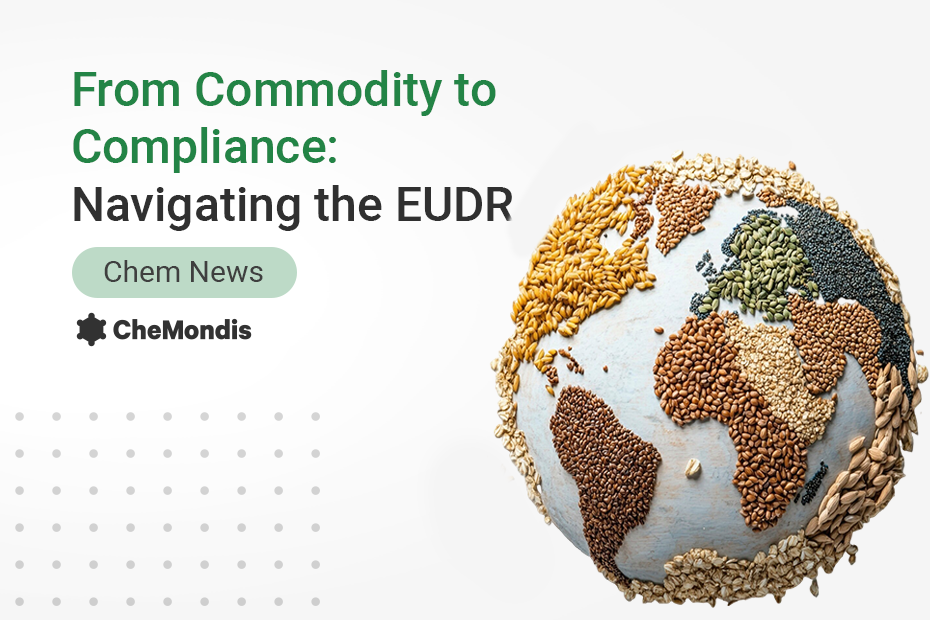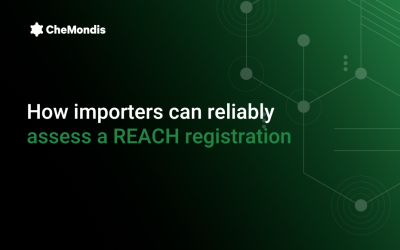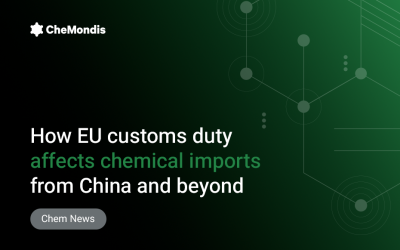The EU Deforestation Regulation (EUDR) will be enforced in December 2025. Food manufacturing procurement managers have a choice: adapt their supplier networks for traceability or risk losing market access.
The EUDR is more than a sustainability guideline. It sets legal duties for all operators and traders who sell relevant products in the EU market. The focus is now on raw materials. This includes high-risk commodities such as cocoa beans, green coffee, soy, and palm oil. These ingredients typically come from regions with intricate land use histories. They also involve informal value chains and have poor documentation.
While enforcement has been delayed from its original December 2024 deadline, this shift has not removed pressure. Supplier qualification and documentation alignment have only grown more urgent.
The EUDR Compliance Landscape: Why Raw Materials are in Focus
The EUDR seeks to cut the EU’s role in global deforestation. By doing so, EUDR makes sure that products sold are deforestation-free and legally made. It targets seven key commodities: cocoa, coffee, soy, palm oil, rubber, timber, and cattle.
The regulation explicitly includes both primary goods and derivative products. For food manufacturers, this means a range of raw and semi-processed ingredients now fall under scrutiny. Examples include:
- Cocoa beans and semi-finished cocoa mass from Côte d’Ivoire, Ghana, and Nigeria
- Green coffee from Brazil, Colombia, and Vietnam
- Crude and refined palm oil from Indonesia and Malaysia
- Soybeans and soy derivatives (e.g., soybean meal, protein concentrate) from Brazil and Argentina
These materials are the key ingredients in many food products. They are used in sweets, baked goods, dairy, and meat substitutes. If they can’t be linked to a specific farm that was deforestation-free as of December 2020, they won’t meet EU compliance standards anymore.
In July 2025, the European Parliament rejected the Commission’s plan for a country risk classification system. This system would have labeled some origins as “low risk.”
As a result:
- No countries currently benefit from an exemption.
- Every operator must perform full due diligence on every relevant shipment.
- Traceability down to the plot of land remains mandatory.
Procurement Challenges: Raw Material Compliance in Practice
EUDR enforcement affects multiple stages of procurement. Among the most pressing issues for raw material buyers:
- Lack of mappable farm-level data
Many smallholders in origin countries do not currently have geo-coordinates, digital land deeds, or deforestation-free certifications. - Reliance on fragmented supplier networks
Brokers, traders, and cooperatives may lack visibility into the exact source of raw materials. This complicates traceability. - Limited documentation culture
Legal origin proof and land-use verification often exist in non-standardized formats, or not at all. Procurement teams must validate and standardize data across diverse sources. - Legacy relationships without compliance guarantees
Longstanding supplier partnerships may offer reliability in logistics or pricing; however, they do not offer documentation. EUDR raises the bar. - Increased customs disruption risk
Incomplete or non-compliant due diligence documentation can result in shipment holds, reputational risk, and financial losses.
How CheMondis Supports Raw Material Procurement Teams
At CheMondis, we help sourcing teams meet new regulatory demands. CheMondis provides structured and verified access to suppliers. Connects buyers and suppliers. Moreover, we also offer clarity, help with compliance, and boost decision-making confidence.
Here’s how:
- Pre-qualified Supplier Data
Our supplier profiles show:- Traceability
- Export capability
- Focus on upstream visibility
We connect you to manufacturers of certified cocoa mass, crude palm oil, and green coffee beans. All have clear sourcing chains. - Custom discovery workflows
We provide a structured longlist of suppliers for each request. EUDR-relevant criteria are highlighted clearly. - Ongoing regulatory alignment
We continuously monitor regulatory updates to ensure our verification processes and supplier insights remain aligned with EUDR expectations.
EUDR compliance is about more than avoiding legal trouble; it’s about safeguarding access to the EU market and ensuring the long-term sustainability of your sourcing strategy.
By preparing early, demanding supplier transparency, and building traceability infrastructure now, food manufacturers will be in a stronger position when enforcement begins.
At CheMondis, we help you stay ahead of the curve.




